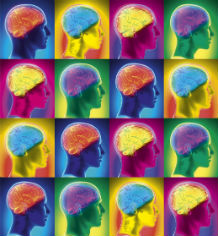Is Free Will an Illusion?

Thursday 8 June 2017, 6.00PM to 7.30pm
Speaker(s): Julian Baggini, Christian Jarrett and Adrian Raine
A York Festival of Ideas event
While many believe that free will is vital for human dignity, morality and responsibility, others claim it is an illusion.
Join philosopher Julian Baggini and psychologists Christian Jarrett and Adrian Raine as they look at free will from differing perspectives. Julian will address the questions of what does free will mean and do we have it. Are we products of our culture, or free agents within it? How much responsibility should we take for our actions?
Christian then will examine how neuroscience has supposedly debunked free will. While the classic findings from neuroscience have suggested free will is an illusion, he will highlight new research which suggests a new interpretation which may be more compatible with the idea that we do have free will. He’ll also examine whether neuroscience findings regarding free will can affect people's beliefs about themselves and their behaviours, like cheating.
Adrian will explain his research on the neurobiology of violence, which applies neuroscience techniques to probe the causes of and cures for crime. His laboratory focuses on risk and protective factors for childhood conduct disorder, reactive and proactive aggression, adult antisocial personality disorder, homicide, and psychopathy. His research leads into questions on free will, responsibility, and punishment.
Dr Julian Baggini is the author, co-author or editor of over 20 books including The Virtues of the Table, The Ego Trick, Welcome to Everytown, Freedom Regained (Granta) and, most recently, The Edge of Reason (Yale University Press). He has written for numerous newspapers and magazines, as well as for the think tanks The Institute of Public Policy Research, Demos and Counterpoint. He has also appeared as a character in two Alexander McCall-Smith novels. He was the founding editor of The Philosophers’ Magazine and has a PhD on the philosophy of personal identity. Julian’s website is microphilosophy.net.
Dr Christian Jarrett is the author of PERSONOLOGY, Using the Science of Personality Change to Your Advantage, forthcoming from Simon and Schuster. His previous titles include the critically acclaimed Rough Guide to Psychology, the international bestseller 30-Second Psychology , and most recently Great Myths of the Brain, described by experts as a “tour de force of critical thinking”, “always smart, often humorous”, and “as entertaining as it is enlightening.” A cognitive neuroscientist by training, Christian became a science writer and editor after post-doctoral research at the University of Manchester. Today Christian works for the British Psychological Society as editor of their award-winning and internationally renowned Research Digest blog, the site he created and launched in 2005. He also writes a regular column on personality for BBC Future, a column on productivity and creativity for 99U, and is an expert panellist for BBC Focus magazine. His recent TED-ED lesson on the psychology of ownership has been viewed over 300,000 times.
Adrian Raine is the Richard Perry University Professor of Criminology, Psychiatry, and Psychology at the University of Pennsylvania. He gained his undergraduate degree in Experimental Psychology at the University of Oxford, and his PhD in Psychology from the University of York. His interdisciplinary research focuses on the etiology and prevention of antisocial, violent, and psychopathic behavior in children and adults. He has published 375 journal articles and book chapters, seven books, and given 335 invited presentations in 26 countries. His latest book, The Anatomy of Violence (2013, Pantheon and Penguin), reviews the brain basis to violence and draws future implications for the punishment, prediction, and prevention of offending, as well as the neuroethical concerns surrounding this work. He is past-President of the Academy of Experimental Criminology, and received an honorary degree from the University of York in 2015.
Location: RCH/037, Ron Cooke Hub, University of York
